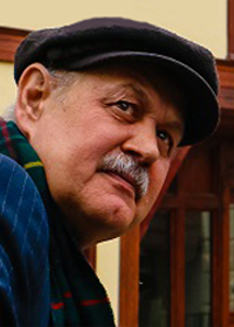The Fisek Institute
In Turkey, we have 11 million children and youngsters, in the age-group 12-19.
Recently, primary the primary education period was extended from 5 to 8 years.. Thereby, primary education is being completed at the age of 15.
Young unemployment is directly related to widespread education. Young persons start working at an early age, and therefore, enter a new and entirely different world..
Child and young labour, though they may supplement the family budget , deprive children and the young from their childhood and youth.
While persons of the same age-group, supplemented by public funds, go to their schools, playgrounds, movies, parks, in short, enjoy their spare-time, child and young workers spend all their time working in small- and middle-scale enterprises.
This is definitely an injustice.
As the Fişek Institute,
For the past 20 years, as an accredited and acknowledged NGO, we are taking concrete steps to better and the conditions and circumstances surrounding child and young workers.
Our long-term aim is to prevent child and young labour from entering the work-force at an age where they can and should enjoy their childhood and youth. Due to socio-economic and socio-political reasons and obstacles, we know and acknowledge that this is very difficult, maybe even utopic.
Our short-term objective is to provide the necessary assistance to our young working population, which shall ease the circumstances surrounding them.
We first povided and are continuing to provide health services to the young working-population. In ofur provinces, Ankara, İstanbul, İzmir and Denizli we have mobile health and dental clinics. These are our working-models.
This project has been supported and supplemented by ILO, and IPEC.
These effort are being continued.
We, then, concentrated our efforts on girl-workers
Male child-young workers are able to continue their early-won professions until a very late age. They gain their economic independence, and even attain a sort of social status.
Quite the contrary, girl-workers are deprived of all these opportunities. Their families want them to bring in some money to the family budget, but definitely do not want them to gain an occupation, or, more definitely, their independence from their families.
The reason is simple. Girls do not work after they are married. They are supposed to cook, clean, and do all the other housework, bear and look aftter their children.
The final result is that the number of children in the family continue to grow.
As a result,
- Her physical and psychological health deteriorates;
- They are isolated from social life;
- Their children become burdens, both to the educational system, and to employment opportunities;
- Both themselves, and their children become victims to social exclusion.
Gender inequality reflects itself , directly, on the working young population.
Starting from this observation and assumption, we have diected towards and concentrated upon girl-workers.
Our primary objective is to assist them in continuing and completing their education, attaining a profession, and keeping it after marriage., and helping them to bolster their self-confidence and female-identity.
Our efforts had echoes, and full-support.
Unfortunately, however, despite all efforts, social injustices and social exclusion are continuing.
One of the basic injustices, facing child young labour, is the longevity of working-hours.
Our studies have revealed that child and young workers work 10.5 hours daily. This period is more extended among the youngest.
Some of them do not even have a weekly day-leave.
A majority has a yearly, 1 to 2 days, waged summer holiday. This is farcical, because child and young workers do not have enough holiday-days to even enjoy themselves.
Quite the contrary, their peers enjoy the recreation opportunities of parks, summer and winter holidays, both in the ski resorts or by the seasides.
This is an apparent injustice, and inequality, which creates, among peers, a lack of dialogue, and maybe jealosy, and even animosity.
Our Fişek Institute Foundation aims at pointing out these inequalities and injustices, and providing working children and youth decent summer vacations.
We have interviewed, and asked opinions of an extensive child-young working population.
We have enquired into their spare-time activities, what they think about a summer vacation, what foods they like or would like to eat, which sports they watch or do.
Our “Holiday Joy for Young Workers” campaign is based on these premises.
AIM: To develop social policies, and create working models, directed at the disadvataged groups in society, particularly child and young labour, for bettering their life styles and conditions.
NOT 1. Since experts and intstructors travel with the participants, the tickets cover everybody.
NOT 2. Since 8 young workers, and 1 instructor come from different provinces, the tickets and provinces are different.
During the meeting times and continuation of the journey, 85,800,000 T.L., for soft drinks, ice cream, fast-food, etc, has not been documented.
Sportswear and sportsgear, motor-boats and canoe, and rentals for sports fields, and photograph-copying
Purchase of extra-wear, slippers, hats, from the local bazaars.
